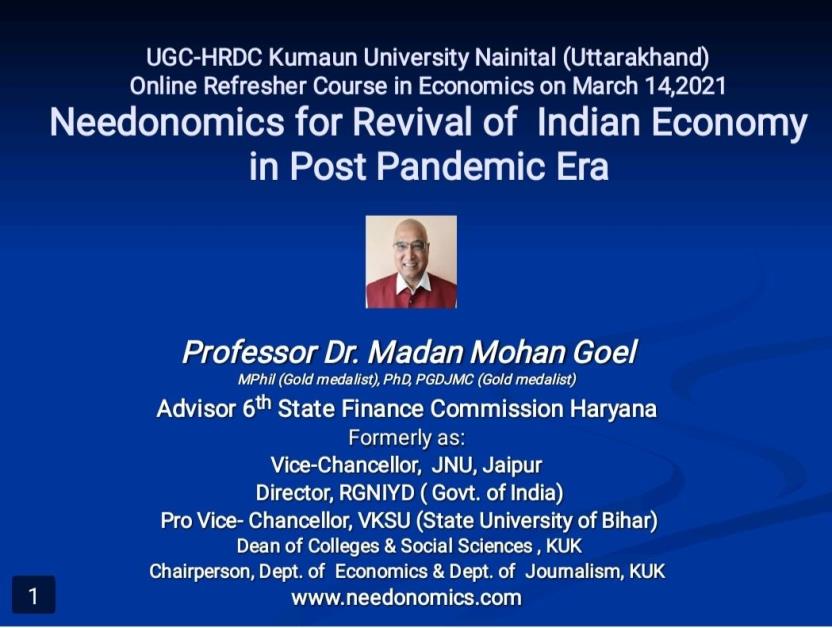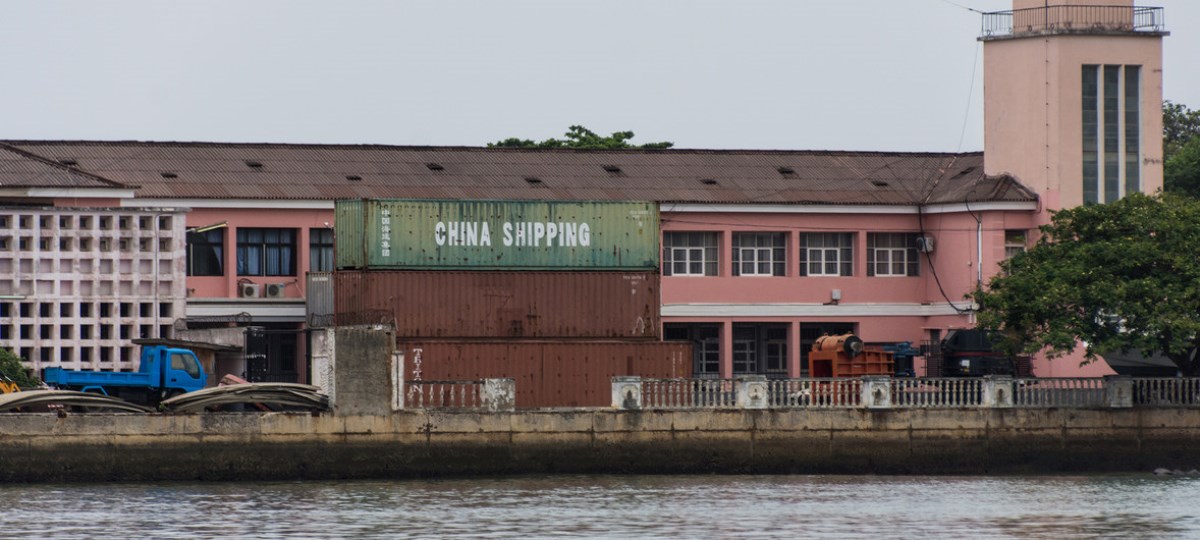I foresee the crisis of Covid bigger than expected difficult to quantify but there are observed implications in terms of recession, bankruptcies, unemployment, underemployment, farmers’ unrest, white-collar crimes, terrorism, exploitation, discriminations, deprivations and discontent among the stakeholders as the challenges for Indian economy
 Dr. M. M. Goel
Dr. M. M. Goel

In spite of the economic and non-economic challenges of covid crisis, the union budget 2021-22 will have to provide relief to all the stakeholders including consumers, producers, distributors and traders. It is necessary for bringing the economy out of the crisis of recession. To make the measures sufficient, we must do serious introspection of the strengths, weaknesses, opportunities and challenges known as SWOC analysis of Indian economy. It is relevant to mention that I read the long speech of 72 pages developed in 145 points on Union Budget 2020-21 of the size of Rs 3042230 crore by Finance Minister (FM) Smt. Nirmala Sitharaman and also understands the Covid created compulsions for her in preparing budget 2021-22. We need to identify the factors under control and beyond control. We have to be enthusiastic to nurture relationships with stakeholders including consumers, producers, traders and distributors. We have to be motivated to succeed in doing things which call for change in behavioural patterns.
I foresee the crisis of Covid bigger than expected difficult to quantify but there are observed implications in terms of recession, bankruptcies, unemployment, underemployment, farmers’ unrest, white-collar crimes, terrorism, exploitation, discriminations, deprivations and discontent among the stakeholders as the challenges for Indian economy.
MSP is a known word among the agitating formers which deserve to be understood as minimum needs, sharing needs and protecting needs of all the stakeholders including farmers more than minimum support price (MSP) of the 23 agro-products announced by the government.
To avoid exclusion errors in the social safety net, we have to provide direct income transfer universally to the tune of at least one per cent of the GDP by pooling some if not all the subsidies.
The blow of recession can be softened with reviving demand of non-essential items by the middle class who require a reduction in personal income tax.
The government should restore the purchasing power of the employees as consumers by paying the dearness allowance which stands frozen and is not justified as is a measure of compensation for inflation.
For ensuring women empowerment and gender equality, the woman FM has to adopt ‘gender budgeting’ more than merely increasing the budgetary allocations for ease of living and improving quality of life.
It has to be noted that about 3/4th of the potential productivity growth come from the broader adoption of best practices or catch up improvements and remaining comes from technological, operational or business innovation that goes beyond today’s best practices and pushes the frontier of India’s GDP potential.
To escape the debt trap of huge dimension, we have to understand ‘Cobra effect’ making solutions worsening the problem (unhappy consequences) and replace fear with fearlessness and work without worries.
Keeping in view the resource crunch in the economy, the conspicuous consumption at micro and macro levels has to be stopped. There is a need for sharing the responsibility calling for pricing policy of public utilities to be linked with inflation.
It would be relevant for the FM to understand and adopt the canons of public expenditure advocated by Dr. B.R. Ambedkar that every Government should spend the resources garnered from the public not only according to rules, laws and regulations but should also see that ‘faithfulness, wisdom and Economy’ are adhered to in the acts of expenditure by the Govt.
Economy can be made consumer friendly by adopting NAW (Need, Affordability and Worth) approach of marketing with a focus on the need-based priorities in choices of all kinds.
Atmanirbharta calls for loans on a zero rate of interest under the monetary policy and zero subsidies under the fiscal policy for implementation of manufacturing policy with export orientation.
We have to learn best practices from other nations including ‘palli palli’ ( hurry up and be quick) culture of South Korea and adopt prognosis approach.
To inspire greater confidence among small entrepreneurs for exports, Khadi and Village Industries Commission (KVIC) needed to be converted into a multinational corporation (MNC) for giving a brand name to the products of MSMEs. The structural transformation more than allocating the resources needed in the Indian economy to be competitive.
Atmanirbharta is necessary and sufficient condition for sustainable development of an economy and its people by keeping a check on greed which is the villain for all.
The Public Private Partnership (PPP) model has become more relevant and calls for monitoring in all its operational dimensions with awareness, alertness and awakening (AAA) with rationality (vivek).
I believe that needonomics ( economics needs) should be the guiding principle for the FM which provides insurance to the Indians for their atmanirbharta based on Gita used in the logo of LIC of India ‘Yogakshemam Vahamyaham’(Your welfare is our responsibility).
There is a strong case for using the used less manpower of the nation who can contribute and also get benefited. To care for the cared less, we need to learn altruism as a rational behaviour in consumption, production, distribution and exchange activities in the Indian economy.
We have to enhance defence expenditure to face the challenges caused by internal threats and terrorism of various kinds including unemployment and unrest among farmers. The only practical solution of these problems is to make military services compulsory for five years for the youth which will bring discipline to the Indian economy in one sense or the other. The domain of military activities will have to be increased to include the agricultural industry.
We need to become street smart (simple, moral, action oriented, responsive and transparent) with uniqueness even if weak for converting the challenges into opportunities as consumers, producers, traders and distributors with honesty without making undesirable demands of higher budgetary allocations in the budget 2021-22. For economic revival and survival, we have to understand, analyze, interpret and implement atmanirbharta by adopting needonomics ( economics of needs) with street smart Indians to ensure their participation. Best wishes to the FM for coming up to the expectations of the various stakeholders.

{The author is Former Vice Chancellor and Needonomist Professor presently Advisor (Public Finance) 6th State Finance Commission Haryana } www.needonomics.com




